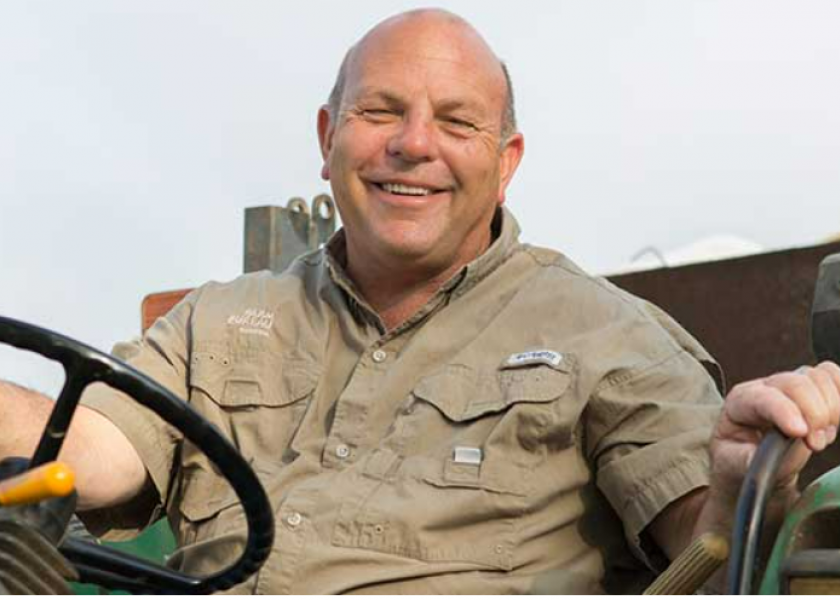Zippy Duvall: Labor is Biggest Limiting Factor for American Agriculture

Zippy Duvall, president of the American Farm Bureau Federation (AFBF), weighed in on a number of President Joe Biden’s proposed policy shifts which were announced earlier today by the White House.
“We understand there's going to be a need for more food because of what's going on around the world, and we very much appreciate the administration looking for ways to help us increase production,” Duvall said during a conversation on AgriTalk with Host Chip Flory on Tuesday.
Biden’s three-part plan would include:
1. Doubling the funding for domestic fertilizer production to $500 million;
2. Providing greater access to farm management tools for plant and soil needs;
3. Increasing the number of counties eligible for double cropping insurance by up to 681 additional counties. That would bring the total number of counties where double-cropping qualifies for crop insurance to 1,935.
While Duvall thanked the Biden administration for trying to address would-be food shortages, he questions whether more double-crop acres is even a viable option for farmers. Concerns he cites include the later than average 2022 planting season and whether adequate soybean seed and other inputs would be available in those additional counties.
“You’ve got to look at the cost of production, whether we will be able to get enough money out of that second crop to meet the cost of producing it,” he says.
Observations On Immigration Reform And Work Permits
What could potentially put more money in farmers’ pockets is the ability to employ more labor.
Specifically, Duvall would like to see legislation to modernize the current guest worker program which would allow year-round, documented workers who could supply U.S. agriculture with manpower.
“Labor is the biggest limiting factor that American agriculture has,” he contends. “If (the U.S. government) wants us to be more productive, give us the workers to be productive with.”
Duvall told Flory he isn’t sure Congress has what it takes to do immigration reform.
“It surely doesn't look like it, but we need to make sure that we secure that border,” he says.
He adds that the situation along the border between the U.S. and Mexico is concerning for the communities and residents located there.
“I've been to the border, and it is a mess,” he says. “Our farmers and ranchers have suffered terribly down there and think the federal government has abandoned them. They're even fearful for their lives in a lot of cases.”
AFBF Criticizes Securities and Exchange Commission Proposal
The Securities and Exchange Commission (SEC) released a proposal in early April called the Enhancement and Standardization of Climate Related Disclosures for Investors, which the AFBF opposes.
The proposal would require public companies to report on Scope 3 emissions, which are the result of activities from assets not owned or controlled by a publicly traded company but contribute to its value chain. The AFBF says it has deep concerns the SEC is proposing a rule that would end up subjecting farmers to regulations that are intended for Wall Street.
“The SEC’s trying to get those companies traded on the stock exchange to follow their carbon footprint all the way back to the farm, and we don’t think they have the authority to do that,” Duvall says.
“We don't need to add any more cost of regulation to our farmers,” he adds. “We're already over-regulated. We just think this is a bad move, and it's another area where the federal government is overreaching.”
The SEC has granted an extension until June for the comment period on the 510-page proposal. An analysis of the proposed SEC rule is available here.
Support For Climate-Smart Commodities Program
AFBF sent letters of support to five organizations that have submitted proposals for the USDA Climate-Smart Commodities program.
USDA is investing $1 billion in approximately 350 pilot projects to create market opportunities for U.S. agricultural and forestry products that use climate-smart practices and include innovative, cost-effective ways to measure and verify greenhouse gas benefits.
Duvall says an AFBF review committee placed a high priority on the projects that reflect objectives laid out by it and state Farm Bureaus during USDA’s request for information process.
Controversy Continues Over Waters Of The U.S. (WOTUS)
The EPA and the U.S. Army Corps of Engineers have proposed a Step 1 WOTUS rulemaking that would repeal the Navigable Waters Protection Rule and replace it with an updated version of what the AFBF calls “murky pre-2015 regulations.”
An AFBF press release says that once the Step 1 rule is complete, the agencies plan to work on a new rule that broadens the WOTUS definition even further.
The EPA and Army Corps of Engineers are in the process of holding regional “listening sessions” to gather feedback from stakeholders on the forthcoming Step 2 rule.
Duvall says he is concerned the stakeholders included in the listening sessions are not diverse enough as a group and do not adequately reflect farmers’ needs and concerns.
“We think (EPA and the Army Corp) limited the people and their experience with the WOTUS rule and they need a wider variety of people involved so they can make wise decisions as they move forward in rewriting this rule,” he says.
“We continue to ask our membership to communicate with EPA, to tell their concerns and their stories from their individual farms, and we're going to continue that movement,” he adds.
Listen here for Duvall’s entire comments on AgriTalk:







